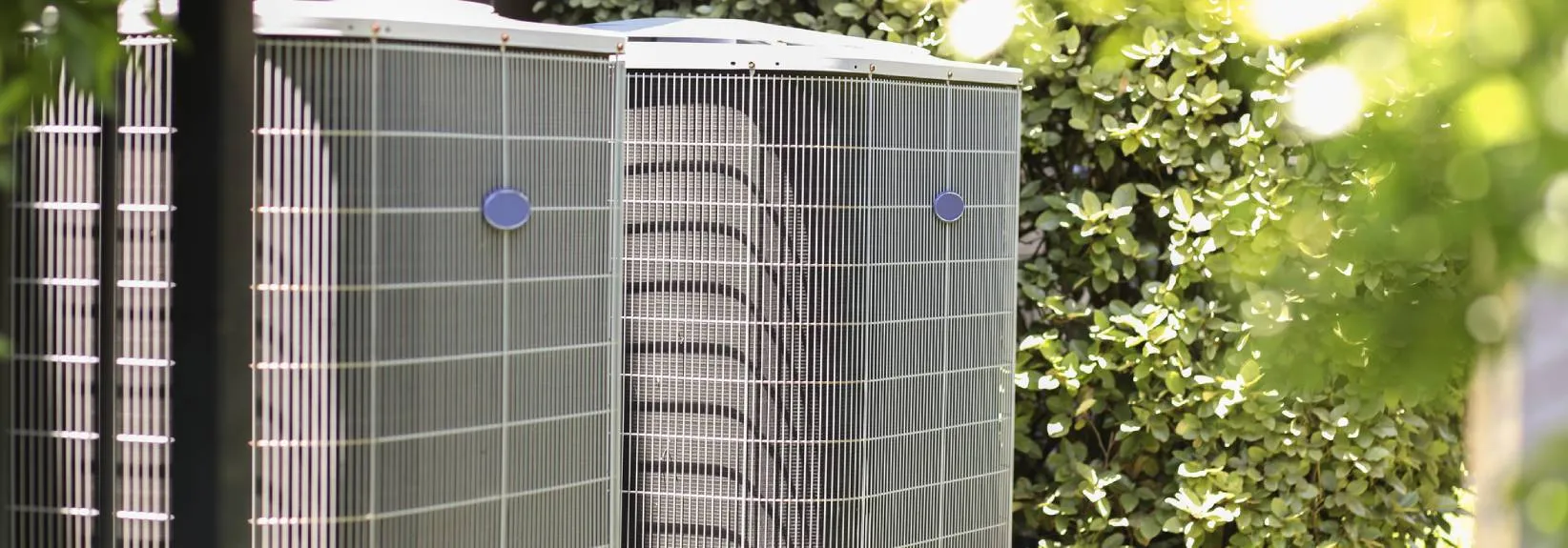What Size Air Conditioner Do I Need?
Whether you’re building a new home or updating your existing air conditioning system, there is one question you’re bound to consider: what size air conditioner do I need? Choosing the correct air conditioner size is a balancing act. Too large, and you could encounter poor humidity control and exorbitant energy bills. Too small, and the unit might not be able to provide comfortable temperatures on scorching hot days. Appropriate air conditioner sizing is required to enjoy an efficient, cost-effective and comfortable cooling experience.
The Importance of Sizing Your Air Conditioner Correctly
Ensuring your air conditioner can generate the perfect cooling capacity is a matter of comfort and energy savings. Here’s why you shouldn’t simply guess the correct AC size:
- Humidity control: An oversized unit cools too fast, preventing humidity removal and rendering your home clammy. A right- sized air conditioner will control indoor humidity levels more successfully.
- Even temperatures: A well-suited air conditioner distributes cool air evenly and minimizes uncomfortable temperature fluctuations between cycles.
- Peak day performance: A system that is too small can struggle to get your home to the target temperature on hot summer afternoons, so you need a unit powerful enough to keep up with cooling demand.
- Proper cycling: Air conditioners turn on and off with sufficient run time per cycle. Units that are too large cycle too quickly, resulting in unnecessary wear and tear. Then again, an undersized system runs continuously, which may cause overheating.
- Manageable utility bills: Cycling troubles caused by selecting the wrong size of air conditioner cause higher utility bills. However, a unit that is the correct size will work as designed and keep your utility bills in check.
Understanding Air Conditioner Size
Cooling capacity is calculated in British thermal units (BTUs). A BTU is a standard unit of energy that conveys the amount of heat an air conditioner can remove every hour. A large percentage of room AC units range from 5,000 to 18,000 BTUs. Because central air conditioners are more powerful, they’re usually measured in tons. A one-ton system is comparable to 12,000 BTUs. Many central AC systems range from 1 to 5 tons.
Sizing a Room Air Conditioner
For window or portable air conditioners, which size you need mostly depends on the room’s square footage. Measure the room—length x width—and match it to the appropriate BTUs:
- A room measuring 150 to 350 square feet will probably require a 5,000 to 8,000 BTU air conditioner.
- A room between 350 and 550 square feet should need an 8,000 to 12,000 BTU unit.
- A large room or open area of 550 to 1,000 square feet may require a 12,000 to 18,000 BTU unit.
These general guidelines don’t consider additional factors like interior heat gain or how much sun streams in through the windows of the room. For a more exact calculation, seek expert advice from Enercare Accent.
Sizing a Central Air Conditioner
Figuring out the perfect size of central air conditioner begins with the home’s square footage, but accurate sizing requires a more in-depth look. HVAC professionals rely on load calculations outlined in Manual J to determine a home’s specific cooling requirements. Here are the elements that professionals consider:
- Square footage: The size of your home substantially affects its AC requirements, with bigger homes generally requiring more cooling capacity.
- Local climate: Where you live impacts your cooling preferences as well. Parts of the country with extremely hot, humid summers normally demand a higher cooling capacity than cooler, drier areas.
- Interior heat gain: The heat created inside your home is made by people, lights, electronics and appliances. Higher internal heat increases your home’s cooling needs.
- Insulation levels: The amount of insulation in your walls, attic and floors affects how much heat gets into your home. Well-insulated homes hold cool air more successfully, reducing the cooling load.
- Air infiltration rate: This describes how much outside air gets in through leaks or cracks in the building envelope. Homes with a high air infiltration requires more cooling to combat the warm, humid outdoor air that sneaks inside.
- Home orientation and window layout: The direction your home faces affects its sun exposure, which in turn has an effect on your home’s cooling load. A single-family dwelling with very large south-facing windows absorbs more heat and necessitates a more sizeable air conditioner than a north-facing condo.
Other Factors to Consider When Buying an AC
Besides knowing what size air conditioner you need, consider these additional factors when installing a new air conditioner:
- Brand: Not all air conditioning systems are created equal. It’s crucial to go with a trustworthy brand for dependability and longevity.
- Efficiency rating: The seasonal energy efficiency ratio (SEER) shows the amount of heat an air conditioner can take out per unit of electricity it consumes. Higher SEER ratings indicate higher efficiency, minimizing your utility bills.
- Maintenance requirements: Regular maintenance keeps your system operating correctly. Most air conditioner manufacturers recommend yearly tune-ups to find and fix small problems before they turn into pricey repairs.
Get Expert Help Sizing Your Air Conditioner From Enercare Accent
Selecting the best air conditioner size can be overwhelming. The Experts at Enercare Accent are here to assist with all your cooling and heating needs. We can provide you with custom cooling remedies to enhance home comfort, efficiency and energy savings.
From estimating your unique cooling specifications to helping you navigate different brands and efficiency ratings, we’re with you at every step. For help picking out the perfect air conditioner for your home in Edmonton, call 587-404-0790 today to schedule your appointment with Enercare Accent.


